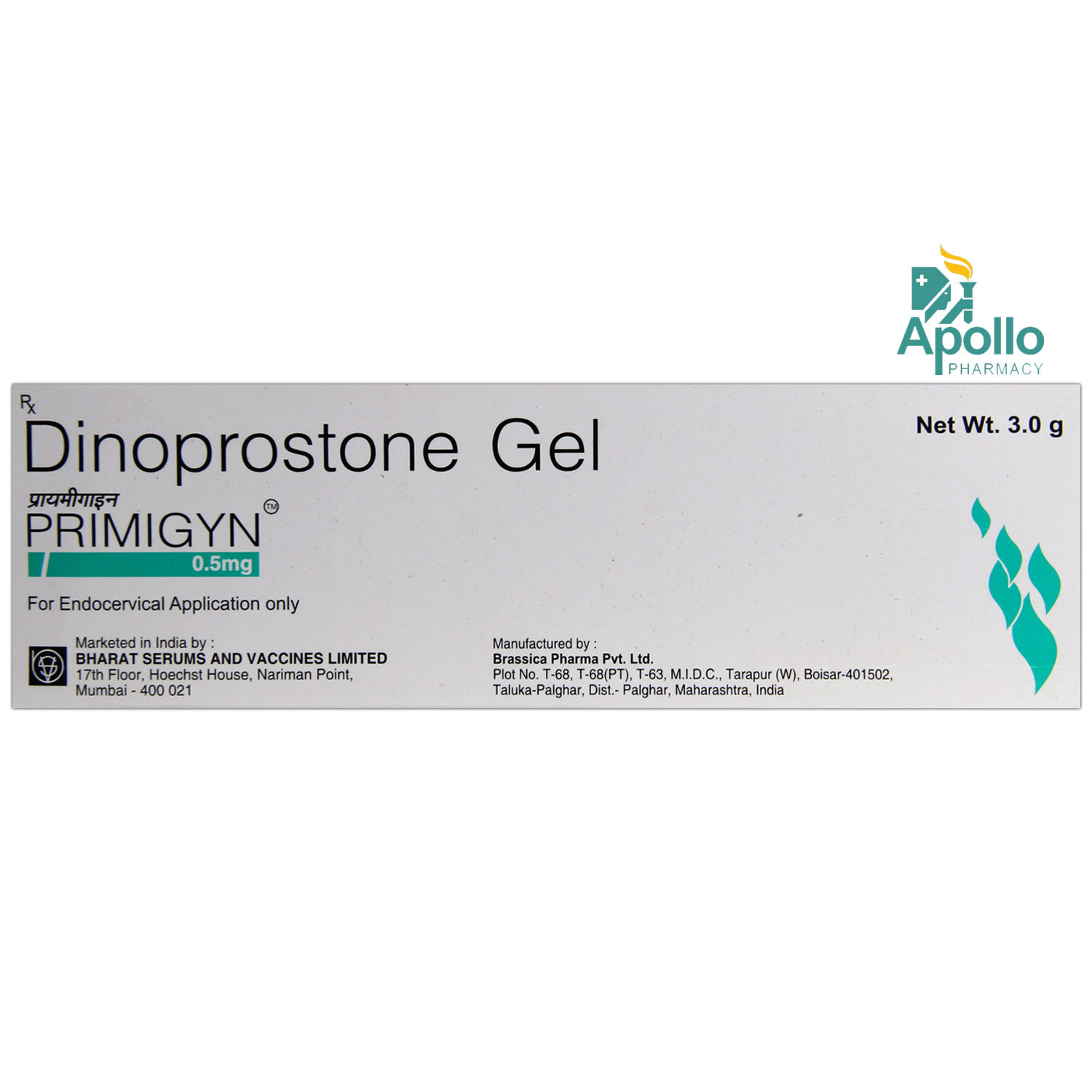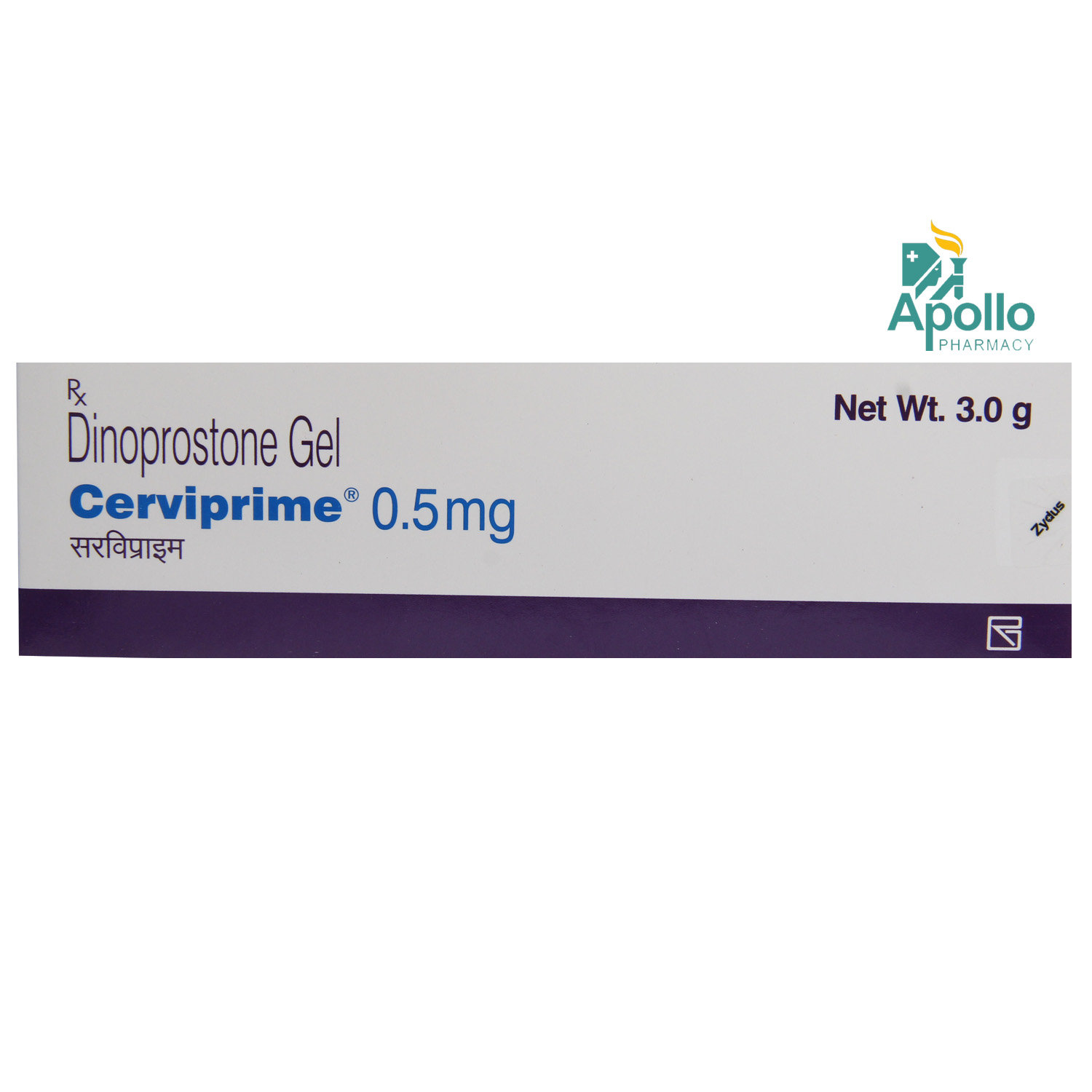Medidin Gel
MRP ₹242
(Inclusive of all Taxes)
₹36.3 Cashback (15%)
Know Your Delivery Time
Provide Delivery Location

Secure Payment

India's Most Trusted Pharmacy

Genuine Products
Composition :
Manufacturer/Marketer :
Consume Type :
Expires on or after :
Return Policy :
About Medidin Gel
Medidin Gel belongs to the class of medication called 'oxytocic' or 'uterotonic', primarily used for the initiation or improvement of uterine contraction (antepartum) and producing uterine contraction during the third stage of labour (postpartum). Labour induction stimulates uterine (womb) contractions during pregnancy before labour pain begins to achieve a vaginal birth. It is recommended by the doctor for labour induction for various reasons, especially when there is a concern for a mother's health or a baby's health.
Medidin Gel contains a prostaglandin Dinoprostone that stimulates uterine muscles and increases the uterus' contractions. It works by increasing the production of a natural substance called prostaglandins (PGs) that softens and widens the cervix (opening of the womb) so that the baby comes out easily. Also, it increases uterus contractions and hence induces labour. As a result, these increased uterine contractions help deliver the child.
Medidin Gel is not intended for self-application as it is typically used in hospital settings under the supervision of medical healthcare professionals. After taking the medication, you may be asked to lie down for at least 30 minutes. You may experience certain common side effects such as back pain, vomiting, diarrhoea, flushing of the skin, and fetal distress in some cases. Most of these side effects do not require medical attention and will resolve gradually. However, you are advised to talk to your doctor if you experience these side effects persistently.
Do not use Medidin Gel if you are allergic to Medidin Gel or its ingredients. Be sure your doctor knows your entire pregnancy history, especially if you have ever had a C-section or major surgery on your uterus, if you have had a baby born in a breech position, or if you have had a difficult labour or delivery of a previous child. Also, mention all the other medications you are taking that affect how Medidin Gel works. A Medidin Gel should not be used for a prolonged time if the contractions do not increase or have severe pre-eclamptic toxaemia (high blood pressure, protein in the urine, and swelling) or blood or heart circulation problems. A professional should always administer Medidin Gel at a hospital and not practice self-administration.
Uses of Medidin Gel
Medidin Gel is used in the management of Labour induction. The detailed uses of Medidin Gel are as follows:
- Cervical Ripening: Medidin Gel softens and dilates the cervix in preparation for labor induction.
- Induction of Labor: Medidin Gel stimulates uterine contractions to initiate labor in full-term pregnancies.

Have a query?
Directions for Use
- Medidin Gel is for vaginal use only.
- It is not intended for self-application, as it is administered by a healthcare professional in a hospital setting at the appropriate time to help your cervix for labour.
- Medidin Gel is applied directly to the cervix through the vagina using a specialized applicator. This is typically done while you are lying on your back.
- After the application, you will need to remain lying down for 15 to 30 minutes, and possibly up to 2 hours, unless your doctor gives different instructions.
Key Benefits
Medidin Gel contains a prostaglandin 'Dinoprostone' primarily used in inducing labour. It plays a major role in childbirth as it softens and widens the cervix (opening of the womb) so that the baby comes out easily. Also, it increases prostaglandin production, which further increases uterus contractions and hence induces labour. As a result, these increased uterine contractions help deliver the child.
How Medidin Gel Works
Storage
- Inform your doctor immediately if you experience a fever after starting a new medication.
- Your doctor may adjust your medication regimen or dosage as needed to minimize fever symptoms.
- Monitor your body temperature to monitor fever progression.
- Drink plenty of fluids, such as water or electrolyte-rich beverages, to help your body regulate temperature.
- Get plenty of rest and engage in relaxation techniques, such as deep breathing or meditation, to help manage fever symptoms.
- Under the guidance of your doctor, consider taking medication, such as acetaminophen or ibuprofen, to help reduce fever.
- If your fever is extremely high (over 103°F), or if you experience severe symptoms such as confusion, seizures, or difficulty breathing, seek immediate medical attention.
- Eat slowly and chew your food well to avoid swallowing air, which can make stomach pain worse.
- Instead of going long periods without eating, try having smaller meals or snacks throughout the day to stop too much stomach acid from building up and causing pain.
- Stay away from fatty, fried, or spicy foods. Instead, eat more healthy, fibre-rich foods.
- Drink plenty of water to help with digestion and avoid soda or alcohol, which can make stomach pain worse.
- Try to manage stress with relaxation techniques, and see a doctor if stress leads to chronic stomach pain.
- Try antacids or medications like proton pump inhibitors to protect your stomach.
- Talk to your doctor about your back pain and potential medication substitutes or dose changes.
- Try yoga or Pilates and other mild stretching exercises to increase flexibility and strengthen your back muscles.
- To lessen the tension on your back, sit and stand upright and maintain proper posture.
- To alleviate discomfort and minimize inflammation, apply heat or cold packs to the afflicted area.
- Under your doctor's supervision, think about taking over-the-counter painkillers like acetaminophen or ibuprofen.
- Make ergonomic adjustments to your workspace and daily activities to reduce strain on your back.
- To handle tension that could make back pain worse, try stress-reduction methods like deep breathing or meditation.
- Use pillows and a supportive mattress to keep your spine in the right posture as you sleep.
- Back discomfort can worsen by bending, twisting, and heavy lifting.
- Speak with a physical therapist to create a customized training regimen to increase back strength and flexibility.
What if I have taken an overdose of Medidin Gel
Drug Warnings
Do not take Medidin Gel if you are allergic to Medidin Gel or its ingredients. Be sure your doctor knows your entire pregnancy history, especially if you have ever had a C-section or major surgery on your uterus, if you have had a baby born in a breech position, or if you have had a difficult labour or delivery of a previous child. Increasing the dose of Medidin Gel can be harmful if your womb already has too strong contractions, any obstructions in the pathway that might prevent the delivery or if the baby is not receiving a sufficient oxygen supply. Also, the use of Medidin Gel is not advisable if the baby is wrongly positioned in the birth canal, the baby’s head is too large to fit through the pelvis, the placenta lies near the neck of the womb, the placenta separates from the womb before birth, the womb is over-extended and likely to tear (in case you are carrying more than one baby). A Medidin Gel should not be used for a prolonged time if the contractions do not increase or have severe pre-eclamptic toxaemia (high blood pressure, protein in the urine, and swelling) or blood or heart circulation problems. A professional should always administer Medidin Gel at a hospital and not practice self-administration.
Drug-Drug Interactions
Drug-Drug Interactions
Login/Sign Up
Drug-Food Interactions
Drug-Food Interactions
Login/Sign Up
Diet & Lifestyle Advise
- Long walks can help relieve stress, keep your body strong, and help with easy delivery.
- Please take a little bit of Castrol oil. It stimulates prostaglandin, which ripens the cervix and initiates labour.
- For some foods like dates, raspberry tea leaves are known to ripen the cervix and get labour started.
- Acupressure also stimulates labour and helps in delivery.
Habit Forming
Therapeutic Class
All Substitutes & Brand Comparisons
RX
Primigyn Gel 3 gm
Abbott India Ltd
₹266.5
(₹79.97/ 1gm)
10% COSTLIERRX
Dinost 0.5 mg Gel 3 gm
Neon Laboratories Ltd
₹270.5
(₹81.17/ 1gm)
11% COSTLIERRX
Cerviprime 0.5 mg Gel 3 gm
Zydus Healthcare Ltd
₹271
(₹81.33/ 1gm)
12% COSTLIER
Alcohol
Safe if prescribed
No interactions were established.
Pregnancy
Consult your doctor
Medidin Gel is used to induce uterine contractions at delivery time. It is not for self-application purposes as usually applied in hospital settings under the supervision of medical healthcare professionals.
Breast Feeding
Consult your doctor
Medidin Gel is most likely unsafe to use while breastfeeding. Based on limited human data, the drug may pass into breast milk and harm your infant.
Driving
Safe if prescribed
No interactions were established.
Liver
Consult your doctor
Inform your doctor if you have liver problems before taking Medidin Gel. Your doctor will weigh the benefits and the risks before prescribing this medicine.
Kidney
Consult your doctor
Medidin Gel can cause fluid retention if used in patients with kidney disease. Hence, inform your doctor if you have kidney problems before taking Medidin Gel. Your doctor will weigh the benefits and the risks before prescribing this medicine.
Children
Safe if prescribed
Medidin Gel is not recommended for children below the age of 18 years. The safety and effectiveness of Medidin Gel have not been established in children due to limited testing of this drug on children by competent authorities worldwide.
Heart
Please inform your doctor if you have a history of heart disease before using Medidin Gel. Your doctor will prescribe it only if the benefits outweigh the risks.
Geriatrics
Consult your doctor
Limited information available for use of Medidin Gel in elderly patients. Please consult your doctor.
FAQs
Medidin Gel is used for the initiation or improvement of uterine contraction (antepartum) and producing uterine contraction during the third stage of labour (postpartum).
Medidin Gel contains a prostaglandin Dinoprostene that works by increasing the production of a natural substance called prostaglandins (PGs), which softens and widens the cervix (opening of the womb) and increases uterus contractions. As a result, these increased uterine contractions and widened cervix help deliver the child.
Medidin Gel is given as a suppository or a gel applied at a hospital only under strict medical supervision. The dose to be administered will be decided by your doctor, depending on your current medical situation.
The most common side effects of Medidin Gel include vomiting, back pain, diarrhoea, flushing of the skin, and fetal distress. You might also feel increased uterine contractions for some time, but these are manageable under medical supervision.
If you have a previous premature delivery or a c-section, or cervical surgery, please inform your doctor before starting Medidin Gel. Also, mention a detailed medical history to your doctor to avoid complications.
No, Medidin Gel should be taken in the dose and duration as advised by the doctor. If you take it in more than the recommended dose, it might cause unpleasant side effects like fetal distress or delivery complications.
It is advised to use Medidin Gel only if prescribed by a doctor as there are chances of increased complications in women aged 35 and above and if you smoke.
Country of origin
Manufacturer/Marketer address
Disclaimer
Author Details
We provide you with authentic, trustworthy and relevant information









